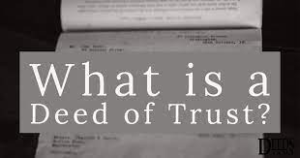As property prices increase, and interest rates on mortgages start to rise, buying a property is becoming a challenging process. There are fewer first time single buyers, and even they may have a financial contribution being made by family, putting them in the same category as couples or friends who are buying a property together.
In all the above circumstances, individuals may feel they have an interest in the property, but this may not be reflected in the title deed and that is why a trust deed should be executed to protect everyone’s interest.
It is important to know that there are two ways of owning property with other parties. These are through a joint tenancy or as tenants in common.
What is a deed of trust?
It is a document which explains how the ownership of the property was divided when it was bought. It should record the financial contributions everyone has made at the time of purchase and beyond. For example, has a parent contributed to the deposit, was the deposit made in contributions which were unequal, and are the mortgage repayments divided equally between parties?
If the property is sold and there is any conflict over how the sale monies should be divided, the deed will allow the courts to fully understand the intentions of the parties at the time of purchase.
You will find plenty of information online about these instruments, including at sites such as https://www.samconveyancing.co.uk/news/conveyancing/deed-of-trust-4378.
What does a trust deed do?
The object of this legal document is to protect anyone who has an interest in the property. This means it enables everyone to get their entitlement if the property is sold at a future date. In the absence of a deed, it is difficult for a court to establish who is owed what since the Land registry documents may not reflect contributions.

So, who should consider a trust deed?
. A couple who are buying a property but are not married may wish to consider this. There is no such thing as common law marriage in the UK and they need to make sure their interests are protected legally, which a trust will do.
. If you contribute towards the mortgage on a property but your name is not on the title deeds, you need to protect your interest by executing a deed with the person or persons whose names are on the title deed at the Land Registry.
. You may have contributed to the deposit as a parent or friend. Again, your name is unlikely to be registered as having an interest in the property and a trust is the best way of guaranteeing your monies will be returned, possibly with interest.

. You can avoid legal disputes by clearly setting out your interest in a property. This will avoid any disagreements which could prove costly for all parties.
Each trust is different and you should take legal advice before entering into one.